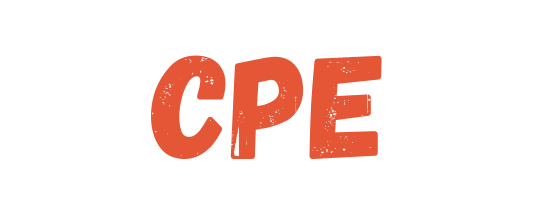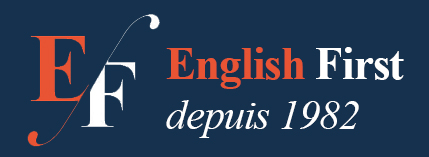Préparation au CPE
Le CPE (Certificate of Proficiency in English) est le test d’anglais de plus haut niveau des nombreux et célèbres examens de Cambridge. CAPITOLE Formation dispose de formateurs CPE compétents, capables de vous offrir une préparation sur mesure optimale à ce test très exigent.

Le CPE valide un niveau très avancé en anglais, il est LA référence mondiale pour les employeurs et les universités anglophones. English First vous forme aux exigences spécifiques au CPE et vous aide à exceller dans la maîtrise de la langue anglaise.
Préparation CPE – Contenu des cours
Avec CAPITOLE Formation, vous travaillez intensément les cinq épreuves du CPE, à savoir :
Reading : durée 1h30, 22 % de la note finale
Etre capable de comprendre le sens du texte dans sa totalité.
Writing : durée 2h, 22 % de la note finale
Montrer vos capacités à rédiger en un nombre de mots restreint (300-350mots) l’un des 4 thèmes proposés (récit, lettre, article de presse, rapport ou composition discursive ).
Use of English : durée 1h30, 22% de la note finale
La maîtrise de l’anglais au niveau de la grammaire et du vocabulaire.
Listening : durée 45 minutes, 12 % de la note finale
Comprendre un enregistrement et relever les informations utiles.
Speaking : 19 minutes, 22 % de la note finale
Etre capable d’interagir avec le jury et un autre candidat, soutenir une conversation, dialoguer, montrer que vous disposez de solides connaissances culturelles.
Préparation CPE, quelle durée?
English First vous propose un test d’évaluation gratuit en anglais afin de fixer de le nombre d’heures de cours nécessaires à votre préparation CPE. Ainsi, avec CAPITOLE Formation votre formation au passage du CPE est sur mesure. Nous proposons en général aux candidats CPE de suivre entre 10 à 12 semaines de cours de préparation. Précisons que, bien entendu, le tarif est dégressif avec le volume horaire.
Les résultats du CPE
Les résultats du CPE sont composées de 5 mentions:
A, B, C : Admis
D, E : Non admis
Test CPE : informations pratiques
La détention du CPE est valide à vie.
Les frais d’inscription s’élèvent à environ 151 €.
Chaque année environ 60 000 personnes présentent le CPE dans plus de 70 pays.
Attention, l’inscription doit se faire au moins 3 mois avant les épreuves, et cet examen n’a lieu que deux fois dans l’année (juin et décembre).
Vous pouvez consulter la liste des institutions qui reconnaissent le CPE : CambridgeESOL Recognition
A quoi correspond le CPE?
Le CPE est communément appelé Proficiency.
Le CPE atteste un niveau d’anglais proche de la langue maternelle et permet d’enseigner l’anglais comme langue étrangère. Passer le CPE avec succès est déjà une réussite personnelle remarquable ; c’est surtout s’ouvrir toutes grandes les portes du monde professionnel et des universités.
TEST DE POSITIONNEMENT AU CPE
Technology is unruly. New innovations bring with them a host of unintended consequences, ranging from the troubling to the downright depressing. Social media makes us lonely. Too much screen–time makes teenagers fall behind their peers. And at the more feeble end of the spectrum, many of us have walked into an obstacle while texting. Whatever glorious vision animates the moguls of Silicon Valley, it surely can’t be this.
We’re much better at designing complex systems than we are at predicting their behaviour, argues the writer Edward Tenner. Even though unintended consequences are inevitable, Tenner thinks they can be powerful catalysts for progress. But even the notion of an “intended consequence” is problematic when it comes to tech. Evgeny Morazov points out that we tend to confuse the positive consequences of information technology with intended ones, downplaying the significance of other natural, but rather less noble, upshots like pornography, surveillance and authoritarian control.
Free time is a case in point. Technology makes us more productive, but it’s also accused of unreasonably extending the domain of work. So does tech liberate us, or enslave us? And what does it really “intend” to do? In 1930, the economist John Maynard Keynes predicted that the most pressing concern of the man of the future would be “how to occupy the leisure which science and compound interest will have won for him.” It hasn’t quite turned out that way – but Keynes wasn’t entirely off the mark. When we consider the lot of the average labourer of the past, our complaints about work-life balance start to sound pretty peevish. And the rise of technology really has, it seems, given us more free time than ever. So why do we still feel harried ?
It’s worth noting that modern leisure is just as tech-saturated as work. Americans who subscribe to Netflix spend more time on the site than they do eating and having sex combined, TDG research found. The average Briton spends 1 hour 20 minutes every day monitoring four social media accounts, according to research from the Global Web Index. But all this screen-time makes us uneasy. To co-opt David Foster Wallace’s description of attitudes to television in the 1990s, there’s a “weird hate-need-fear-6-hrs-daily gestalt” about the whole thing. But technology doesn’t just offer us escape. It promises to transfigure our bodies, our minds and our very souls by making us fitter, happier, and more productive – but it does it by insinuating that we’re, well, a bit suboptimal as we are. “There’s an app for that” comes with a whispered aside: “You know you’re doing it wrong, right?”
Criticisms of tech can sound shrill, but it’s not antediluvian to notice the impossible desires technology breeds. Our devices present us with simulacra of beautiful, fit, fulfilled people pursuing their dreams and falling in love, and none of them are browsing the web at 11pm on a Saturday night – unlike us. We click and swipe our woebegone way through a vibrant world where nobody who is anybody spends their free time in front of a glowing screen, painfully aware that our only access to that world is through that very glowing screen. But we’re no fools. We know that nothing on the web is as it seems. We long to detach ourselves from the whole circus once and for all – and so we turn once again to the internet to research digital detoxes and vent our tech-related spleen. The web has a way of dancing around us, knowingly and self-referentially and maddeningly deflecting every attempt we make to express our unease.
But prying our free time from the clutches of technology isn’t necessarily the answer. The German philosopher Theodor Adorno argued that “free time” is an artificial concept – and it’s anything but free. For Adorno, free time is the very prorogation of work: it is “nothing more than a shadowy continuation of labour”. Today’s tech- saturated leisure trade – to say nothing of the trillion-dollar behemoth that is the “wellness industry” – is an integral part of a world in which we are treated as consumers first and citizens second. Talk of reclaiming free time is missing the point. What we need is control of the time we already have. […] We love to praise tech, and we love to condemn it. We equate it with chaos, power, love, hate; with democracy, with tyranny, with progress and regress – we laud it as our salvation, while lamenting it as our scourge. Like any technology that has come before it, digital technology is all of these things. But it’s essentially none of them.
Adapted from The Guardian, December 9, 2015
English First 40 ans d’expérience, 40 ans d’excellence
Chez English First , On vous propose 12 Formations de tests d’anglais.

